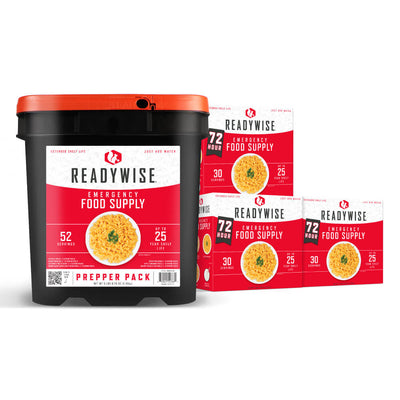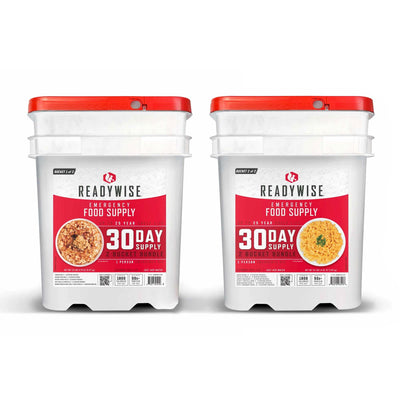How to Get Closer to Having a Self-Sufficient Homestead
In many ways, homesteading is the embodiment of the American dream. Our ancestors built this country by slowly expanding westward, taming the land and creating self-sufficient communities from upstate New York all the way to the Pacific Northwest.
However, homesteading usually means giving up the luxuries of modern life and working around the clock to keep your new lifestyle intact. If you fall behind on routine maintenance or struggle to grow your own food, you’ll probably end up giving up on your dream or visiting the local supermarket once a week like everyone else. Homesteading is all about self-sufficiency and depending on yourself for pretty much everything.
If you’re looking to be more self-sufficient with your homestead, make sure you incorporate these ideas into your daily routine.
Reduce Everyday Expenses
Money tends to be scarce when it comes to living off the land. You may have quit your day job or reduce your income in order to live out your dream, which means you need to safeguard your finances going forward. The more money you spend on everyday items, the less self-sufficient you’ll be.
To save money, you’ll need to reduce your everyday expenses and find other ways of making ends meet. This may include growing your own food, coming up with ways to complete certain tasks at home and not spending as much money on utilities.



ReadyWise offers a Heirloom Vegetable Seed Bucket that includes 39 different varieties of hand-selected non-hybrid, non-gmo, open-pollinated vegetable seeds. It has a 10 year shelf life and includes more than 4,500 heirloom seeds. This could be a great item to have on hand when thinking about growing your own food.
Sit down and create a list of everything you spend money on and decide whether it’s essential. Look at each item and figure out if you can achieve the same results yourself. For example, if you visit the local farmers market for fresh basil every Saturday, try growing basil on your property instead. Are you constantly going out of your way for fresh fertilizer? Try creating your own fertilizer at home using eggshells, coffee grounds, vinegar and compost.
Generate Your Own Electricity
One of the easiest ways to be self-sufficient is to generate your own electricity, using solar, wind or hydro power. Figure out which is best for you based on where you live and how much sun you get on a regular basis. It’s important to remember that you’ll need to spend a fair amount of money on equipment to get started, even though the electricity should be free once you get everything up and running.
You will also need to create a way to store excess power in case the wind dies down or the sun disappears for days on end. You may also need a backup generator as well to keep the lights on when things go dark.

Preventative Maintenance
As a homesteader, you depend on equipment and machinery to keep your property self-sufficient, including your vehicle, gardening and towing equipment and your solar-powered generator, as well as all the appliances inside your home. If something breaks or suddenly stops working, you’ll probably be out of luck unless you know how to fix it.
That’s why preventative maintenance is key when it comes to living off the grid for years on end. You need to get in the habit of taking care of your equipment and addressing certain issues before they turn into major problems.
Let’s start with your vehicle. Visiting a local mechanic may not be realistic if you’re living in the middle of nowhere. Use fitted floor mats to protect the floor of your car from excess mud, water and dirt. Adding a rubber floor mat isn’t just about keeping the interior of your car clean. It’s also about preventing mold, oxidation and rust, also known as the enemy of motor vehicles.
There’s nothing worse than getting behind the wheel only to step in a puddle of mud and dirt. Things can easily get messy when you’re growing your own food and working the land, so lay down some all-weather floor mats to keep your feet warm and dry every step of the way. Stock up on plenty of must-have items before going off the grid, such as WD-40, motor oil, brake fluid, windshield fluid, extra tires and anything else your vehicle may need down the road.
Apply the same methodology to your home. Get to know the ins and outs of your household appliances and try to fix common issues instead of calling a repairman. Bring along all the tools you might need to fix or power your equipment, including extra light bulbs and gas for your stove or grill, as well as extra pipes, wires, wood, nails, bolts and screws.

Don’t Neglect Your Health
As you focus on taking care of your garden, home and vehicle, don’t neglect the most important thing: yourself. Nothing will send you rushing back to modern society like a sudden injury or illness. Maintain your health as time goes on to make sure you can still look after yourself and your property. Get plenty of sleep, make sure you have regular access to safe drinking water and eat more than just homegrown tomatoes and potatoes. Watch out for vitamin deficiencies, especially if meat becomes scarce in the winter.
Use caution when working around the property. You may be eager to be entirely self-sufficient, but don’t sacrifice your health and safety as a result. If you’re not sure how to safely fix a piece of equipment or complete a certain task, wait for assistance instead of doing something you might regret.
Make sure you know what to do in case of an emergency. Keep emergency contacts on hand and let your loved ones know where you’re going.

Having a backup emergency food storage can give you peace of mind while living off the grid, just in case something were to happen. ReadyWise offers emergency food storage buckets that can last up to 25 years.
Homesteading can be a lot less romantic than it sounds, especially if you’re adamant about being self-sufficient. It takes a great deal of planning, conservation and precision. Use these tips to keep your equipment, home and vehicle safe when living off the grid. Try growing your own food and generating power to reduce your dependency on the outside world. With a little practice, you’ll be a professional homesteader before you know it.
Author: Will Ryan


















































































